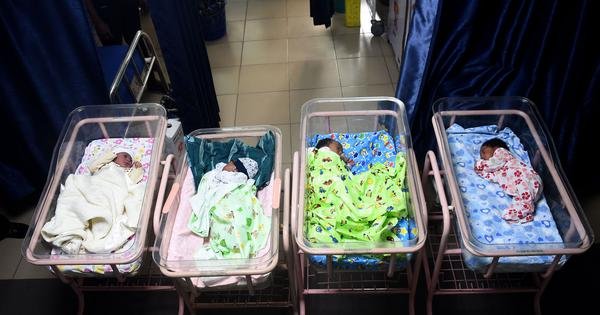Nigerian Women and Childbirth Abroad: Insights from Their Experiences
The Phenomenon of Nigerian Women Giving Birth Overseas
Nigerian women make up a significant portion of foreign women who give birth abroad. In Calgary, Canada, a study found that 24.5% of foreign women who traveled to give birth were from Nigeria. In Chicago, US, research showed that 88% of those seeking obstetric care in a hospital were Nigerian citizens. The UK even has a term for it – the “Lagos Shuttle”. It’s estimated that over 23% of pregnant Nigerian women would like to travel abroad to give birth.
Why Do They Do It?
As medical and legal scholars, we asked women who had traveled overseas for childbirth to share their experiences. Existing research has not done enough to capture their voices, which matter in framing service delivery and immigration policies.
Our study, published in PLOS Global Public Health, found that reasons for seeking childbirth abroad varied. Some women were motivated by perceived and experienced gains of foreign citizenship for their children, such as better education, living environment, and access to jobs and loans. Others sought better healthcare, especially after bad experiences during previous births in Nigeria or when carrying a “precious baby” after years of infertility.
Many women also sought childbirth abroad because they had loved ones to support them through pregnancy, childbirth, and having a newborn – a motivation not previously reported.
Mostly Positive Experiences
Childbirth abroad is mostly a positive experience, but some women reported feeling treated badly because they were “self-paying” patients, “black”, or not native to the country. While travel for many was mostly uneventful, some experienced life-threatening situations en route to their destination or upon arrival.
The cost of care was exorbitant, but many reported that they were able to pay it off in installments, or negotiated rebates or discounts from hospitals. Support during childbirth abroad was considered crucial and included loved ones from Nigeria who would travel with the pregnant woman to their destination.
Push and Pull Syndrome
With an ongoing exodus of Nigerians out of the country due to push and pull factors, known locally as jàpa, it is more likely that there will be more Nigerian pregnant women who have their support system abroad. Countries like Nigeria should do more to improve the quality of care obtainable in their health systems.
Motivations vary, and it is not always about birthright citizenship. While most women have mostly positive experiences, some have negative experiences that require attention and safeguards. For example, care guidelines in host countries specifically assuring good quality care for all pregnant women, including women who have crossed the border to seek childbirth.
The return of US president Donald Trump makes the need to install these safeguards particularly urgent. In his first term, he ordered the United States Department of State to discontinue the approval of visas for pregnant women. In his second term, he has focused on abolishing birthright citizenship altogether.
About the Authors
Aduragbemi Banke-Thomas is Associate professor, London School of Hygiene & Tropical Medicine. Olayinka Lewis is Senior lecturer, University of Essex.
This article was first published on The Conversation.



